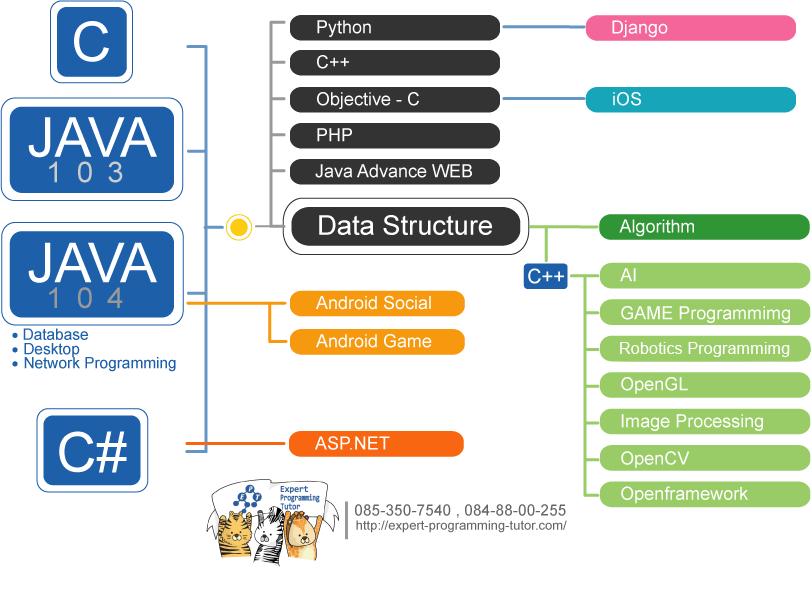หัวข้อ: พื้นฐานการใช้งาน Constructor ในภาษา Fortran
การเขียนโปรแกรมเป็นทักษะสำคัญของโลกยุคดิจิทัล แต่ละภาษาโปรแกรมมีความโดดเด่นและมีเอกลักษณ์ที่แตกต่างกัน วันนี้เราจะมาพูดถึงหัวใจสำคัญในการเขียนโค้ดภาษา Fortran นั่นคือ `Constructor` ซึ่งเป็นหน่วยส่วนประกอบสำหรับการกำหนดค่าเริ่มต้นให้กับ object หรือ type ที่กำหนดขึ้นมาภายในโปรแกรม
ในภาษา Fortran, Constructor มักใช้กับ derived types, ซึ่งเป็น data types ที่ผู้ใช้สามารถนิยามขึ้นมาได้เอง เพื่อประสิทธิภาพและการทำงานที่แม่นยำของโปรแกรม ต่อไปนี้เป็นตัวอย่างโค้ดพร้อมการอธิบายการทำงานของ Constructor ในภาษา Fortran:
module my_mod
type :: my_type
real :: x
real :: y
end type my_type
contains
function my_type_constructor(x, y) result(obj)
real, intent(in) :: x, y
type(my_type) :: obj
obj%x = x
obj%y = y
end function my_type_constructor
end module my_mod
program test_constructor
use my_mod
type(my_type) :: obj1
obj1 = my_type_constructor(2.0, 3.0)
print *, "x =", obj1%x, "y =", obj1%y
end program test_constructor
ในตัวอย่างข้างต้น, เราได้สร้าง type ที่ชื่อว่า `my_type` ซึ่งประกอบด้วยสองตัวแปรที่เป็น real numbers. Constructor `my_type_constructor` ถูกสร้างมาเพื่อให้สามารถกำหนดค่าให้กับ object จาก type `my_type`. ในโปรแกรมหลัก, เราได้ใช้ Constructor นี้เพื่อสร้าง object `obj1`.
module math_mod
implicit none
private
public :: vector, vector_constructor
type :: vector
real :: x = 0.0
real :: y = 0.0
real :: z = 0.0
end type vector
contains
function vector_constructor(x, y, z) result(v)
real, intent(in), optional :: x, y, z
type(vector) :: v
if (present(x)) v%x = x
if (present(y)) v%y = y
if (present(z)) v%z = z
end function vector_constructor
end module math_mod
program test_optional_constructor
use math_mod
type(vector) :: v1, v2
v1 = vector_constructor(1.0, 2.0, 3.0)
v2 = vector_constructor()
print *, "v1 =", v1%x, v1%y, v1%z
print *, "v2 =", v2%x, v2%y, v2%z
end program test_optional_constructor
Constructor `vector_constructor` ในตัวอย่างนี้มีความยืดหยุ่นมากขึ้น รับอินพุตที่เป็น optional อย่าง x, y, และ z ซึ่งทำให้ผู้ใช้สามารถสร้าง vector ได้โดยไม่ต้องกำหนดค่าเริ่มต้นให้กับทุก ๆ แกน.
! อนุมานว่าเรามีโมดูลสำหรับการจัดการวันที่ (date_mod)
module date_mod
implicit none
private
public :: date, date_constructor
type :: date
integer :: day
integer :: month
integer :: year
end type date
contains
function date_constructor(day, month, year) result(d)
integer, intent(in) :: day, month, year
type(date) :: d
! สมมติว่าเราได้ตรวจสอบความถูกต้องของวันที่ในนี้
d%day = day
d%month = month
d%year = year
end function date_constructor
end module date_mod
program test_date_constructor
use date_mod
type(date) :: today
today = date_constructor(28, 2, 2023)
print *, "Today's date is", today%day, "/", today%month, "/", today%year
end program test_date_constructor
ในตัวอย่างที่ 3, `date_constructor` ถูกใช้เพื่อสร้างวันที่ที่มีความถูกต้อง ซึ่งในโลกจริงมันสามารถนำไปใช้ในระบบที่ต้องการการจัดการหรือคำนวณข้อมูลที่เกี่ยวข้องกับวันที่ได้.
ตัวอย่างการใช้งาน Constructor ในภาษา Fortran เหล่านี้แสดงให้เห็นว่าภาษาที่มีอายุมากมายและมักถูกมองว่าล้าสมัยเช่น Fortran ก็ยังมีความสามารถที่ทันสมัยและยืดหยุ่น การทำความเข้าใจกับหลักการพื้นฐานเช่นนี้จะเป็นประโยชน์อย่างยิ่งในการนำไปประยุกต์ใช้ในโปรเจกต์จริงในองค์กรหรือการวิจัย.
เพื่อพัฒนาทักษะการเขียนโค้ดและการใช้งาน Constructor ในภาษา Fortran หรือภาษาอื่นๆ อย่างมีประสิทธิภาพ อย่าลืมแวะเข้ามาเรียนรู้และพัฒนากับเราที่ EPT (Expert-Programming-Tutor) ซึ่งเรามีหลักสูตรและผู้ชำนาญการที่พร้อมจะทำให้คุณกลายเป็นนักพัฒนาซอฟต์แวร์ที่มีฝีมือและมั่นใจในการเขียนโค้ดอย่างมืออาชีพ!
หมายเหตุ: ข้อมูลในบทความนี้อาจจะผิด โปรดตรวจสอบความถูกต้องของบทความอีกครั้งหนึ่ง บทความนี้ไม่สามารถนำไปใช้อ้างอิงใด ๆ ได้ ทาง EPT ไม่ขอยืนยันความถูกต้อง และไม่ขอรับผิดชอบต่อความเสียหายใดที่เกิดจากบทความชุดนี้ทั้งทางทรัพย์สิน ร่างกาย หรือจิตใจของผู้อ่านและผู้เกี่ยวข้อง
Tag ที่น่าสนใจ: fortran constructor programming derived_types type_definition code_example real_numbers flexibility object_initialization programming_language software_development digital_era data_types programming_skills code_flexibility
หากมีข้อผิดพลาด/ต้องการพูดคุยเพิ่มเติมเกี่ยวกับบทความนี้ กรุณาแจ้งที่ http://m.me/Expert.Programming.Tutor
085-350-7540 (DTAC)
084-88-00-255 (AIS)
026-111-618
หรือทาง EMAIL: NTPRINTF@GMAIL.COM
